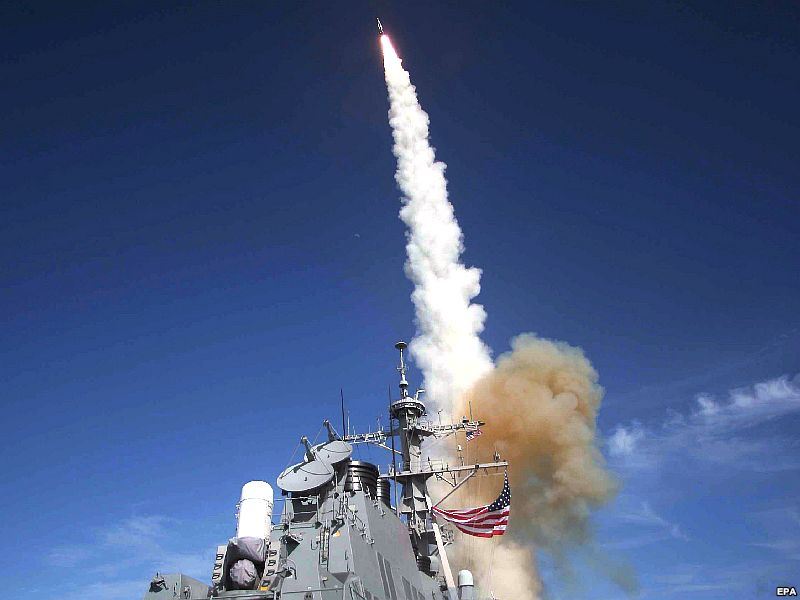
From Rachel Oswald, Global Security Newswire: A senior State Department official on Friday said that a ballistic missile shield being established in Europe would contribute to defending the U.S. homeland , despite a recent decision to toss out plans for an advanced ICBM interceptor site in Poland.
In March, the Pentagon canceled plans to develop and field in Poland the Standard Missile 3 Block 2B interceptor, which would have been used principally to protect the United States, due to concerns about the utility of the weapon and its technological feasibility. Nonetheless, some Republicans on Capitol Hill are advancing past arguments that Washington spends too much on European missile defense at the expense of homeland defense.
The expenditures in Europe have particularly come under debate as the Obama administration and Capitol Hill contemplate cuts in military spending as part of overall federal deficit reduction.
An amendment to the House version of the fiscal 2014 defense authorization bill, which the Republican-dominated lower chamber passed earlier this month, would order the executive branch to seek funding from fellow NATO members to pay part of the costs of the phased adaptive antimissile system.
The Obama team in 2009 announced it would offer this system to the alliance as its national contribution to collective missile defense. At that time, there was no corresponding U.S. demand that NATO members foot part of the bill for the project, though a number of countries are also developing antimissile capabilities that are to be integrated into the U.S.-European Phased Adaptive Approach, sometimes termed "EPAA."
“Some people have said, ‘Well, the allies should be paying more of the burden,’ but that’s just not how NATO works,” the State Department official said at a Capitol Hill event. The senior official requested anonymity to offer more candor in discussing the issue.
The White House has threatened to veto the bill if it comes before President Obama with the text on the funding split still in place. The administration argues that the measure runs “contrary to NATO alliance processes, contrary to longstanding NATO alliance principles.”
The amendment, which was sponsored by Representative Doug Lamborn (R-Colo.), would specifically order Obama to discuss with NATO how to secure a minimum of 50 percent financing from the alliance for the “infrastructure and operations and maintenance costs of Phase 1” of the EPAA initiative. The first stage of the missile shield encompasses a U.S.-supplied X-band radar fielded in Kurecik, Turkey; a command-and-control center based in Ramstein, Germany; and two U.S. Aegis system-equipped guided missile destroyers that are in rotation in the Mediterranean.
The measure would also direct the Obama administration to attempt to secure NATO common funding for at least half of the costs for the second and third phases of the missile shield. Phase 2 anticipates around 2015 having four U.S. Aegis missile destroyers home ported in Rota, Spain, and fielding a radar unit and 24 Standard Missile 3 Block 1B interceptors in Romania. Under the third phase, expected to be carried out around 2018, 24 SM-3 Block 1B and 2A missiles are to be installed in Redzikowo, Poland. . . .
Defense equipment purchases that are funded jointly by NATO "have to meet certain criteria, they have to go through a long [review] process,” said Barry Pavel, a former White House National Security Council senior director for defense policy and strategy under the George W. Bush and Obama administrations.
In the view of the Obama administration, the EPAA initiative does not meet the benchmarks for being a project that warrants NATO common funding, Pavel said in a Monday interview. (photo: EPA)
Image: epa%206%2025%2013%20Missile%20Defense.jpg
